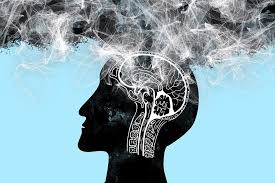
Maintaining Muscle Mass May Help Prevent Dementia, New Research Suggests
New research presented at the annual meeting of the Radiological Society of North America highlights an intriguing link between muscle mass and dementia risk, suggesting that maintaining skeletal muscle may play a role in preventing cognitive decline.
The study, led by Marilyn Albert, a professor of neurology at Johns Hopkins University School of Medicine, found that older adults with smaller skeletal muscles were about 60% more likely to develop dementia compared to those with larger muscles, after adjusting for other known risk factors. Albert shared these findings at the conference in Chicago on Tuesday.
Skeletal muscle, which constitutes about one-third of a person’s body weight, naturally shrinks with age. To explore how this decline in muscle mass could impact brain health, Albert’s team focused on the temporalis muscle, located near the jaw, which has long been associated with overall skeletal muscle loss in the body.
“Measuring temporalis muscle size as a potential indicator for generalized skeletal muscle status offers an opportunity for skeletal muscle quantification,” said Dr. Kamyar Moradi, lead author of the study and a postdoctoral research fellow at Hopkins.
The team analyzed brain scans of 619 individuals with an average age of 77 to gauge the size of the temporalis muscle. Participants were categorized into two groups: those with larger temporalis muscles and those with smaller ones. The results were striking.
People with smaller temporalis muscles were significantly more likely to have been diagnosed with Alzheimer's disease, the study revealed. Additionally, they were more prone to memory problems, declines in daily functional activity, and reduced brain volume.
Though the study does not prove a cause-and-effect relationship, it underscores a notable association between muscle loss and dementia risk. As the findings were presented at a medical meeting, they should be considered preliminary until published in a peer-reviewed journal.
However, the researchers are hopeful that their discovery could lead to new ways to address cognitive decline. Dr. Shadpour Demehri, co-senior author and a professor of radiology at Hopkins, emphasized that once individuals recognize they are losing muscle mass, they can take preventive steps such as weight training and dietary adjustments. These interventions could help slow muscle loss and, in turn, reduce the risk of dementia.
“These interventions may help prevent or slow down muscle loss and subsequently reduce the risk of cognitive decline and dementia,” Demehri said.
As the study indicates, the health of our muscles may be more closely linked to brain health than previously thought, opening up new avenues for preventing cognitive decline in older adults.